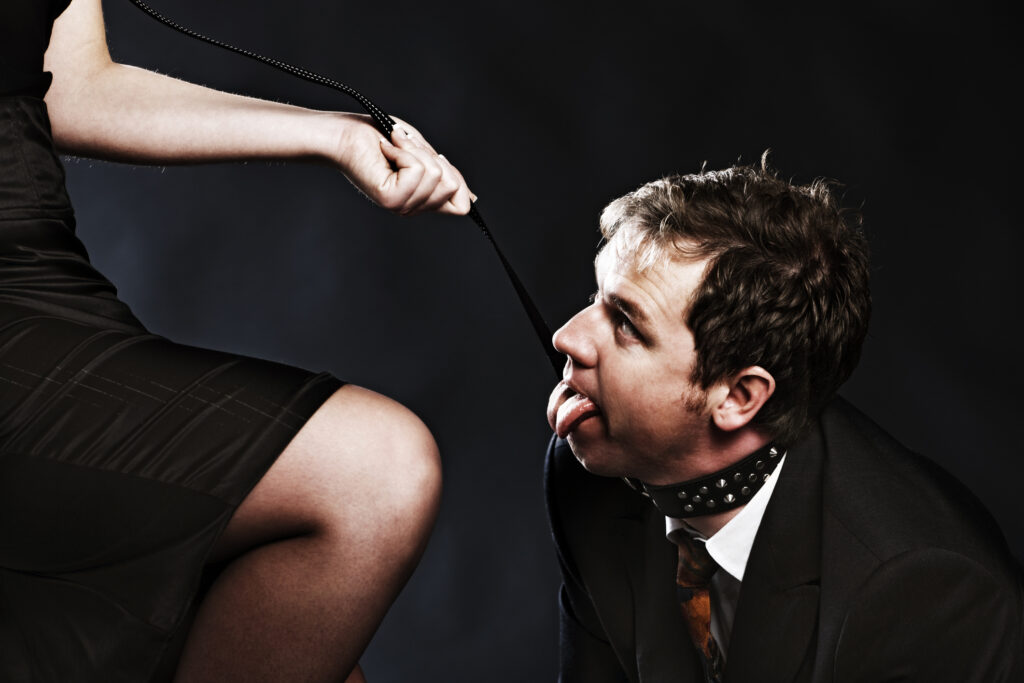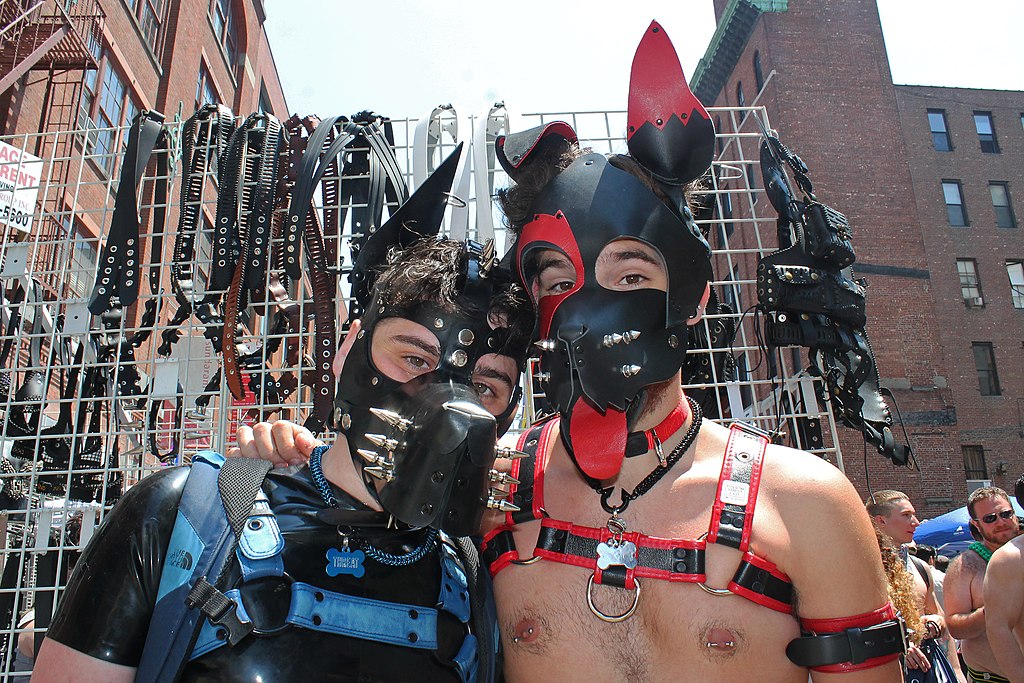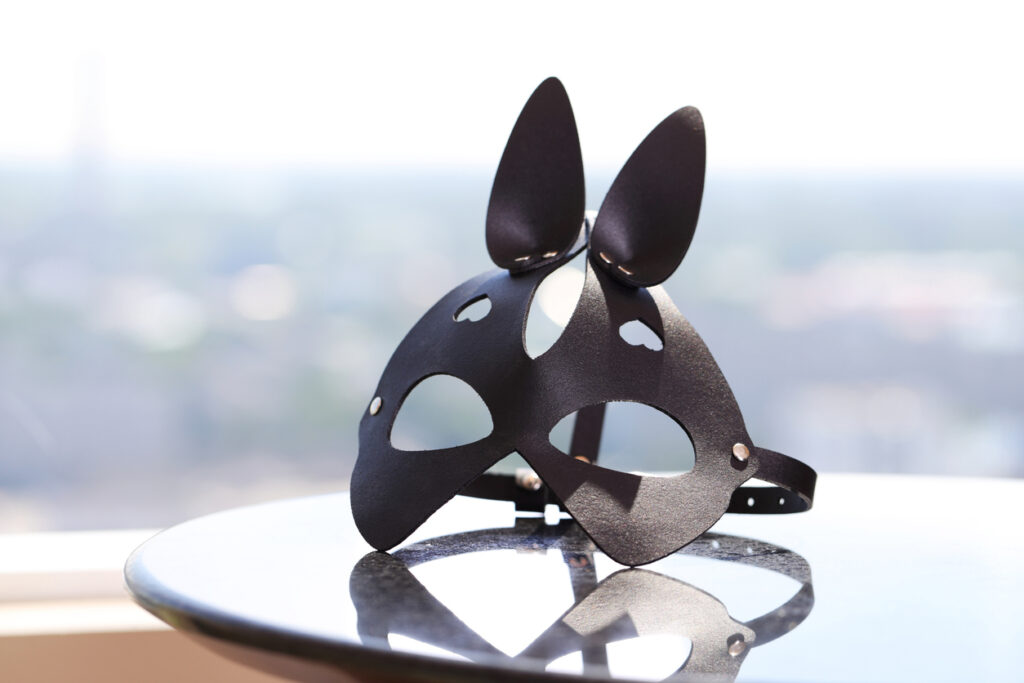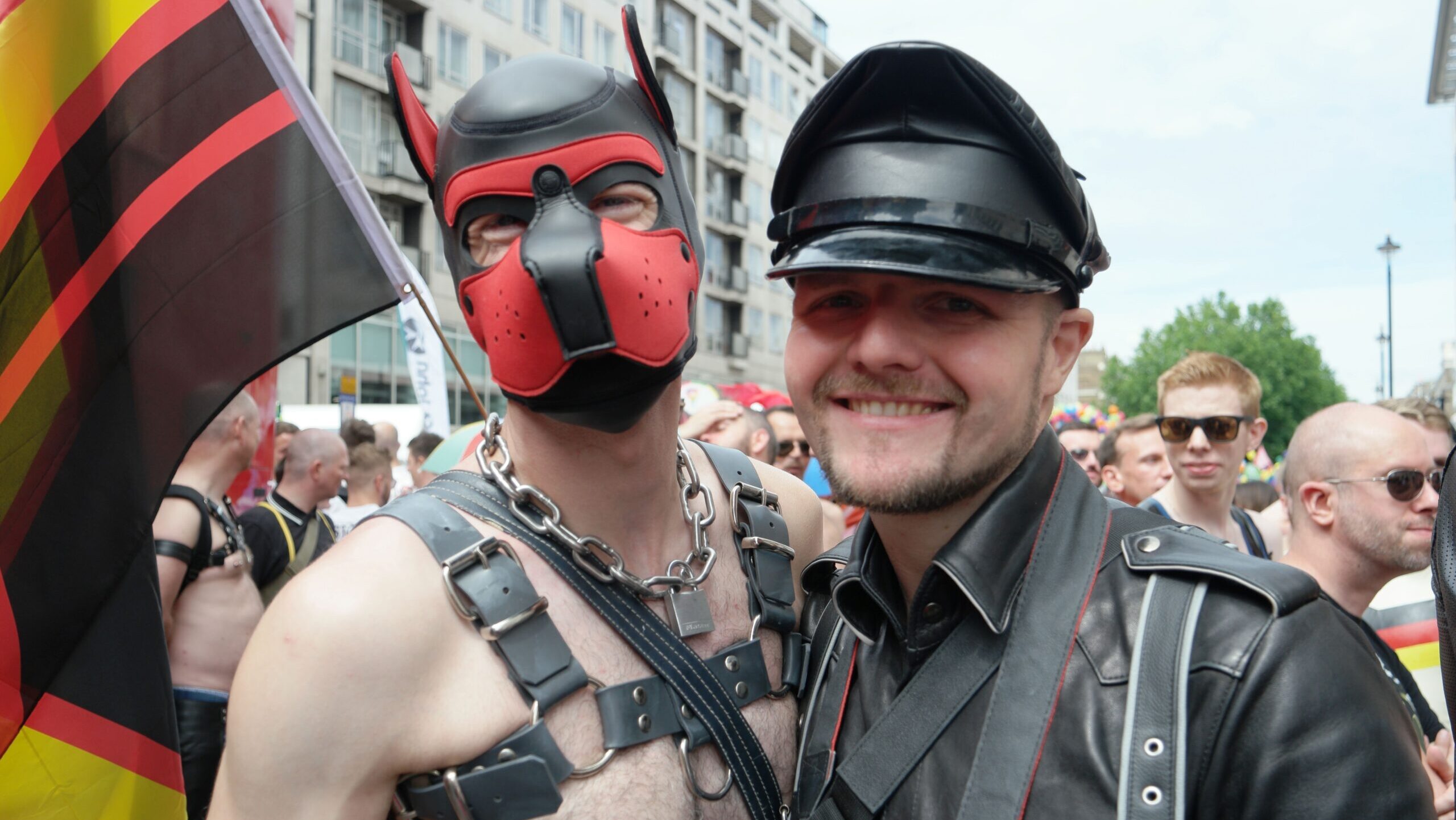You drop to all fours, and the weight of life melts away. The leash clips to your collar with a satisfying click and suddenly, you’re not you. You’re something freer, wilder—a playful pup ready to explore, to please, to simply be.
Your world narrows to simple things: your partner’s voice, their touch, the sound of your breathing as you ‘wag’ your tail. There’s no stress, deadlines, or noisy clutter in your mind—just you and the intimate bond you share with your person. You’re a creature of instinct, playing and pleasing. “Good pup,” they murmur, and you practically melt into the floor. In that moment, you’re whole, relaxing in the pure uncomplicated pleasure of being you.
Puppy play may feel niche but thanks to #puppyplay, #tiktokpuppack, and #pupphouse, this BDSM subculture is leaping into mainstream algorithms. In “Psychology of Puppy Play: A Phenomenological Investigation” Researchers Darren Langdridge and Jamie Lawson Ph.D. explore this lifestyle through interviews with those who play. They want to know why folks love pretending to be puppies and what they get from it. Because understanding why people embrace playful, unconventional roles reveals how we chase connection, freedom, and sexual fulfillment.
Why do people love BDSM?
An umbrella term encompassing practices like bondage, dominance, submission, and masochism, BDSM can feel tabooish. But scratch the surface and you’ll find a complex and deeply personal space that extends beyond sexual gratification. BDSM provides a structured space to explore control and surrender. For some, being dominant can allow you to embrace your confidence and authority. And submission can provide a sense of escapism—a relinquishing of responsibilities that offers relief from daily pressures. Researchers like Roy F. Baumeister Ph.D. have described this as an “escape from self,” where kinksters may find freedom from their day-to-day identities by embracing a role.
BDSM can also be therapeutic. Studies have shown that practices within this community can help folks process past traumas or deepen emotional bonds with their partner(s). Some describe the experience as meditative, a form of mindfulness that fuels presence and intimacy.
Those who role-play as dogs (often puppies) and their human handlers exist in a niche subculture of BDSM. For “pups,” playtime is all about taking on canine-like characteristics—playfulness, loyalty, and freedom from judgment. For their handlers, it’s about providing care, setting boundaries, and assuming dominance. It isn’t simply sexual exploration; it lets them reconnect with simple joys and childlike imagination.

Interviewing pups and handlers
The researchers recruited 68 people—mostly men—from Europe and North America. Ages ranged from 18 to 62, with a majority of participants identifying as “pups” and a handful as “handlers” or “both.” They found these puppy play fans via Twitter and community mailing lists. The participants needed to be experienced in puppy play and willing to share all the deets of pup life.
The study used two methods: online surveys and in-depth interviews. In the surveys, participants described a memorable puppy play session in detail. Interviews took it a step further with questions like “What does being in pup headspace feel like?” or “How important is puppy play to your life?”
Puppy Play IRL
The surveys and interviews reveal a lifestyle filled with emotions, connections, and self-discovery—from pleasure to community.
For many, puppy play brings sexual gratification. It’s not always about sex but often about the puppy foreplay. Matt explained, “Usually, I pup out for a bit until I’m super horny before it becomes very sexual.” The Dominance and submission (D/s) dynamic plays an important role. Pups often find their sexual pleasure through being subservient to Handlers—things like obeying commands, being collared, or having pup gear on. They love to “be plugged”—with a tail—and crave their Master’s approval.
For others, the act is playful and non-sexual. They reject the more extreme dominance associated with traditional BDSM—showing the flexibility and inclusiveness of these spaces.
Relaxation, therapy, and mindfulness
Who doesn’t need a break from adulting?
Puppy play offers a therapeutic escape. It’s a way to “put away” work and daily stress and focus on being present. Jax described it as an “escape [from] the day-to-day human stuff.” Handlers are a big part of this. They help pups feel safe while guiding them into this relaxed headspace—whether it’s a compliment or playful praise, this relationship is about trust.
The research team found that being in “pup headspace” helps folks strip away worries and live in the moment. Koda admitted, “When I pull the hood on… I stop thinking in words. It becomes a much more emotional, primal headspace.”
It’s not about pretending to be a dog; it’s about becoming one. This transformation is supported by their pup gear like hoods, tails, and collars, which help them feel less human and more dog-like. The repetitiveness of playing with a ball, the sound of a squeaky toy or even simply being on all fours deepens the experience. The simplicity of the role makes them feel free from judgment and human anxiety.
It’s mindfulness but with a twist.
Playing & Self-Discovery
Puppy play allows adults to embrace their silly side. Bella said, “Because it’s fun, and I feel very free. Life doesn’t allow for much freedom really.” Playing fetch, wrestling with other pups, or just wagging their tails gives folks a physically playful outlet. These folks are all about play, which is why they prefer to be a “puppy” rather than a dog. Puppies are mischievous, energetic, and loveable.
It’s not just about escaping reality, puppy play gives them a way to explore themselves—such as confidence, playfulness, or curiosity. This self-discovery often spills into everyday life. Participants said the confidence they feel as pups helped them take more risks and be more authentic. Samson shared how their pup persona “leaked” into their human self, inspiring them to be more assertive and open. And it can improve body confidence. Some participants claimed puppy play helped them feel more comfortable by wearing pup gear that accentuates their bodies or confidently embracing their bodies.
The connections
Overall, puppy play is about relationships. Folks describe deep, meaningful connections with Handlers, packs, and community. The co-created experience builds trust and affection, creating bonds that feel as strong as family. In fact, many use familial terms such as “brother” or “alpha” to describe these relationships.
And this sense of community goes beyond individual connections. Online forums, local meetups, and even social media help them feel like they are part of something bigger. It’s not simply one person’s experience—it’s about belonging.

Limitations and future research
D. Langdridge and J. Lawson acknowledge their sample wasn’t representative. Most of the participants were white, European or North American, and male. “This limits the diversity of perspectives,” they noted, recognizing the voices from women, non-binary folks, and people of various cultural backgrounds were missing. The study relied heavily upon self-reported experiences, which could introduce bias or leave out nuanced complexities.
So, what’s next for research? The duo suggests exploring how cultural factors, sexual orientation, and gender shape puppy play. They also encourage examining the long-term psychological impacts of the lifestyle. Future studies could compare puppy play to other BDSM practices. What makes it unique? How does it overlap?
The research partners hope their work sparks curiosity and inspires academia to dig even deeper.
Finding your inner pup
Did the research pique your curiosity? If you have an inner spirit animal, puppy play could be the space for you! Pet play gear will thrust your mind into all the feels and help you slip into a puppy headspace.
Collars, leashes, and harnesses—oh my!
Made with fabrics, metals, leather—or vegan leather—and adorned with bedazzles and stones; this is where your exploration and creativity can boost your kinky fun.
Tails
Explore both wearables or insertables (anal plugs with tails attached). You’ll find tails made of everything from rubber to fluffy faux fur.
Ears and hoods
There are simple ears or entire face hoods you can wear to create your puppy persona.
Life doesn’t need to be serious—lean into a pup lifestyle and reveal your playful side—you may discover a new community and sexual pleasure.




